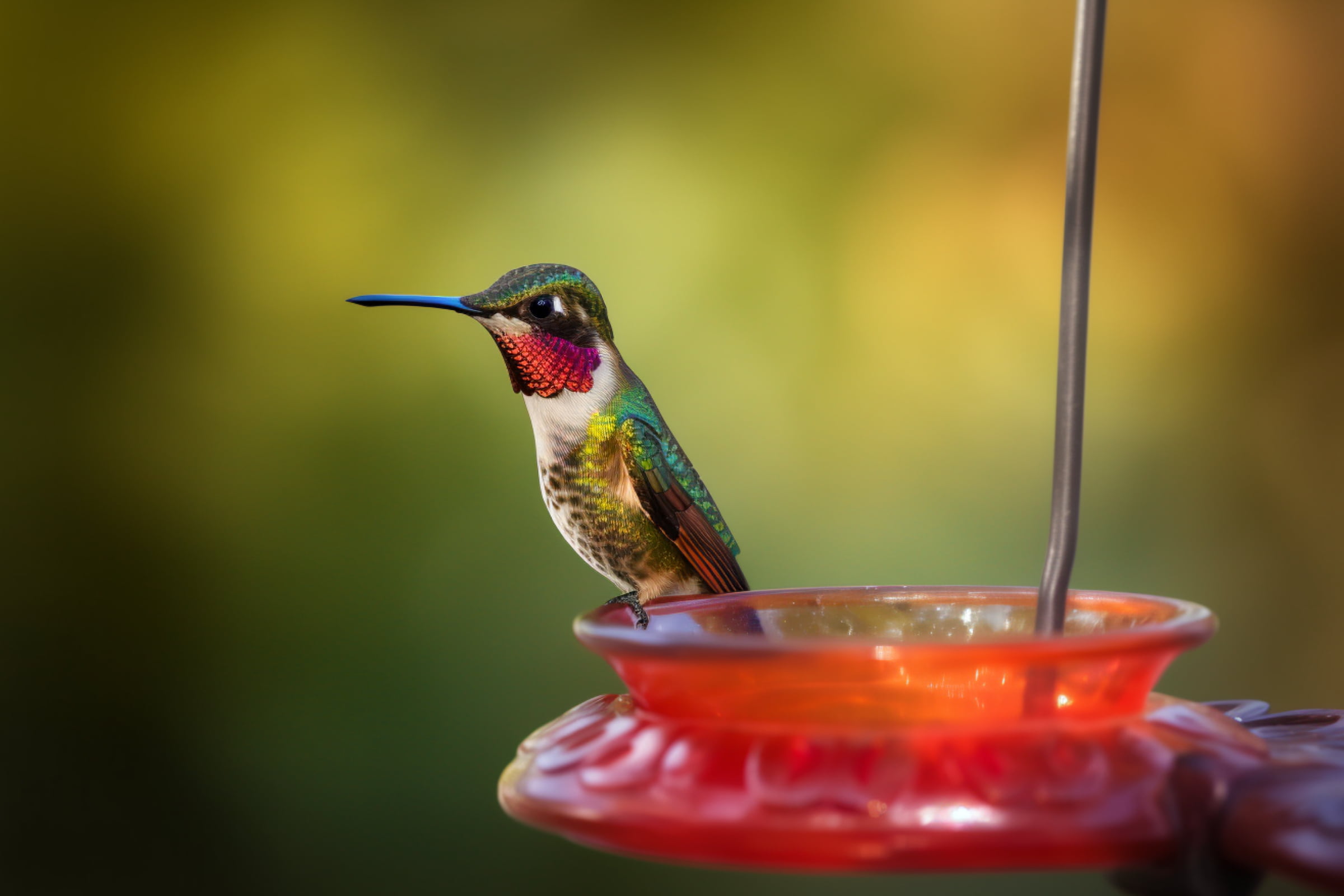Ever wondered why a hummingbird would simply sit on the feeder, seemingly inactive? The main reason for this behavior is that hummingbirds need to rest and conserve energy. These birds have incredibly fast metabolisms and must save energy whenever possible.
However, there are other factors that could explain this behavior. In this article, we will explore additional reasons for this curious behavior and provide insights into the fascinating world of hummingbirds.

Conserving Energy: The Need for Rest
Hummingbirds are renowned for their speed and agility. To maintain their high energy levels, these small birds must consume a significant amount of nectar daily. By sitting on a feeder, they can rest while still having easy access to their primary food source. Resting on the feeder allows them to conserve energy for their next flight, which is crucial for their survival.
Territorial Behavior: Guarding the Food Supply
Another reason why a hummingbird might sit on the feeder is to protect its food source from other hummingbirds or potential competitors. Hummingbirds are territorial creatures and may claim a particular feeder by perching on it. This behavior helps them ward off intruders and ensure their access to the nectar.
Digesting Food: Taking a Breather
Hummingbirds need to consume a substantial amount of nectar to meet their energy requirements. After a large meal, they may sit on the feeder to digest their food. This natural process allows them to break down the nectar and convert it into energy.
Weather Factors: Seeking Shelter
During unfavorable weather conditions such as heavy rain or strong winds, hummingbirds may seek shelter by perching on a feeder, provided it is in a safe location. The feeder provides a secure and stable spot for the bird to rest and wait out the inclement weather.
Health Concerns: A Possible Warning Sign
If a hummingbird sits on the feeder for an extended period and appears lethargic or unresponsive, it may indicate illness or injury. In such cases, the bird may be too weak to fly or feed itself. If you suspect a hummingbird is sick or injured, it is advisable to contact a local wildlife rehabilitation center for assistance.
Keeping Your Feeder Hummingbird-Friendly
To ensure that your hummingbird feeder remains a safe and inviting place for these tiny creatures, consider the following tips:
- Clean your feeder regularly: To prevent the growth of mold and bacteria, clean your feeder with a solution of one part white vinegar to four parts water at least once a week. Rinse it thoroughly and allow it to dry before refilling it with fresh nectar.
- Use the right nectar recipe: A simple homemade nectar solution of one part sugar to four parts water is ideal for hummingbirds. Avoid using red food dye or commercial nectar mixes that contain additives, as these can be harmful to the birds.
- Provide perches: While hummingbirds can hover while feeding, they appreciate a place to perch and rest near the feeder. You can purchase feeders with built-in perches or attach a small twig or branch to your existing feeder.
- Keep an eye out for pests: Ants, bees, and wasps may be attracted to the sweet nectar in your hummingbird feeder. To prevent these pests from taking over, use an ant moat and avoid using yellow-colored feeders, as yellow is attractive to bees and wasps.

Conclusion
Hummingbirds are truly remarkable creatures that captivate us with their vibrant colors, astonishing speed, and seemingly endless energy. Observing them sitting on a feeder provides valuable insights into their behavior, biology, and the delicate balance they maintain to survive in their environment.
By understanding why a hummingbird might sit on the feeder, we can appreciate the various factors that influence their lives. Whether they are conserving energy, guarding their territory, digesting food, seeking shelter from the elements, or dealing with health concerns, each reason reveals the intricate complexities of their existence.
As we continue to learn more about hummingbirds and their behavior, it is crucial to provide them with safe and welcoming habitats in our gardens and outdoor spaces. Ensuring the well-being of these fascinating birds not only enriches our lives but also contributes to the conservation of their species and the overall health of our ecosystem.
In the end, observing a hummingbird perched on a feeder is not only a delightful sight but also a reminder of our interconnectedness with the natural world. By taking the time to understand and appreciate these small yet mighty creatures, we can foster a greater appreciation for the beauty and wonder of the world around us and inspire us to protect and preserve the delicate balance of our planet’s ecosystems.
